Latest Regulatory Trends in Cryptocurrency and Tokenization.
Navigating Compliance in the Evolving World of Digital Assets.
Latest Regulatory Trends in Cryptocurrency and Tokenization.
Navigating Compliance in the Evolving World of Digital Assets.
Cryptocurrency Regulation Trends are crucial to understand and follow. In the rapidly evolving landscape of digital finance, staying abreast of regulatory changes should be a priority for any entity involved in cryptocurrency and tokenization. This article provides a comprehensive overview of the current regulatory trends that are shaping the cryptocurrency and tokenization sectors. As governments and regulatory bodies worldwide tighten their grips or open new doors to innovations, understanding these shifts is essential for compliance and strategic decision-making. At Token Genius, we meticulously monitor these changes to offer our clients expert guidance, helping them navigate the complex regulatory waters with confidence and ensure that their operations remain compliant with the latest legal requirements. Through this exploration, we aim to highlight the key considerations and implications of these regulatory trends for businesses and investors engaged in the digital asset market.
Overview of Current Regulations
The regulatory landscape for cryptocurrencies and tokenized assets is continuously evolving. Major financial watchdogs across the globe have been implementing diverse sets of rules that affect how digital assets are created, traded, and managed. For instance, the United States’ Securities and Exchange Commission (SEC) has increased scrutiny on ICOs (Initial Coin Offerings) and other token offerings to ensure they comply with existing securities laws. Similarly, the European Union has been working on the Markets in Crypto-Assets (MiCA) framework to harmonize digital asset regulations across member states.
Impact on Businesses and Investors
These regulatory changes significantly impact how businesses operate and how investors engage with the market. Enhanced regulations aim to increase transparency, enhance investor protection, and prevent financial crimes such as money laundering and fraud. However, they also impose new compliance burdens and operational constraints on companies operating within this space, potentially affecting their profitability and business models.
Key Regulatory Bodies and Their Roles
Several key regulatory bodies play pivotal roles in shaping the cryptocurrency and tokenization landscapes. Understanding the roles and expectations of these regulatory bodies is essential for businesses to navigate the regulatory environment effectively:
- Securities and Exchange Commission (SEC): Focuses on securities law compliance in the U.S.
- Financial Conduct Authority (FCA) in the UK: Oversees the financial operations and ensures that financial laws are being followed.
- Financial Crimes Enforcement Network (FinCEN): Monitors for any signs of financial crimes in the crypto space.
Compliance Strategies
To remain compliant in a dynamic regulatory environment, businesses must adopt robust compliance strategies that include:
- Ongoing monitoring and adaptation to new regulations: Keeping abreast of all regulatory changes and adjusting operations as necessary.
- Implementing robust KYC and AML procedures: Ensuring all customer data is verified and that transactions adhere to anti-money laundering standards.
- Engaging with regulatory bodies: Proactively engaging with regulators can help influence policy development and ensure that the business’s voice is heard in the regulatory process.
Recent Legislation Changes
Recent years have seen significant updates to legislation surrounding digital assets. For instance, in 2023, the U.S. passed amendments to expand the definition of monetary instruments to include digital currencies under the Bank Secrecy Act, enhancing reporting requirements for digital asset transactions. In Europe, the updated MiCA (Markets in Crypto-Assets Regulation) has started to lay down standardized rules for crypto asset service providers, aiming to protect consumers and ensure market integrity across EU nations.
Recent Events
- Change in Leadership of US Government and financial agencies are seeking wider deregulation of Digital currencies and assets.
- A major cryptocurrency exchange adapted to the EU’s MiCA regulations by restructuring its token offerings to ensure compliance, significantly reducing the risk of penalties.
- A blockchain startup successfully navigated the SEC’s evolving guidelines on ICOs by registering its tokens as securities, allowing it to operate within U.S. jurisdiction without legal repercussions.
Proactive adaptation to regulatory changes can lead to continued operational success and growth in the blockchain and crypto sectors.
Compliance Checklists
To assist businesses in navigating the regulatory landscape, here are key compliance checkpoints:
- Registration Requirements: Verify whether your digital assets qualify as securities and if so, register them with the appropriate regulatory authority.
- KYC and AML Protocols: Implement and maintain robust Know Your Customer and Anti-Money Laundering processes to verify the identity of your clients and monitor transaction patterns.
- Reporting Obligations: Stay updated on your reporting obligations under your jurisdiction, which may include disclosing large transactions or suspicious activities to regulatory bodies.
Predictions for Future Regulatory Trends
As digital currencies and tokenization become more mainstream, future regulatory trends are likely to include tighter scrutiny and more comprehensive frameworks. Predictions indicate that as governments become more knowledgeable about the technology, there could be a move towards global standards that facilitate smoother international transactions and uniformity in compliance procedures. This would address current issues of regulatory arbitrage where businesses choose jurisdictions based on the most favorable regulations.
Global vs. Local Regulatory Trends
The approach to cryptocurrency regulation varies significantly around the world:
- Asia: Countries like Japan have embraced cryptocurrencies with relatively open regulatory frameworks aimed at boosting innovation while ensuring security.
- Europe: The European Union is seeking a balanced approach with its MiCA regulations that protect consumers but also foster innovation.
- United States: Traditionally strict, focusing heavily on consumer protection and fraud prevention, which has sometimes been perceived as a barrier to innovation.
Understanding these local versus global trends helps businesses strategize their operations based on geographical regulatory climates.
Expert Opinions
Insights from financial and legal experts suggest that ongoing education and engagement between the blockchain industry and regulators are crucial for developing fair and effective regulations. Experts emphasize the importance of transparency and accountability in fostering a regulatory environment that protects consumers while encouraging innovation.
Conclusion
The regulatory landscape for cryptocurrency and tokenization is continuously evolving, presenting both challenges and opportunities for stakeholders in the digital assets space. Staying informed and proactive in compliance is not just beneficial but essential for businesses operating in this arena. As we have explored, the intricate interplay of global and local regulations demands a nuanced understanding and strategic adaptability.
Token Genius is committed to guiding our clients through these complexities, providing up-to-date insights and strategic advice that align with the latest regulatory developments. Our focus is on ensuring that your ventures in cryptocurrency and tokenization not only meet current legal standards but are also poised to adapt to future changes in the regulatory environment.
In conclusion, as the world of digital assets grows and matures, the importance of robust regulatory compliance cannot be overstated. It is the key to maintaining trust, ensuring investor protection, and fostering a healthy, sustainable market for cryptocurrencies and tokenized assets. With Token Genius as your partner, you can navigate this dynamic landscape with confidence, assured in the knowledge that your investments are both secure and compliant.
Your Next Steps
As we navigate the ever-changing regulatory landscape of cryptocurrency and tokenization, staying ahead of compliance requirements is crucial for success. Token Genius is here to assist you in mastering these complexities and leveraging them to your advantage.
For further information on blockchain complaince review other articles available in the News section of our website. This will provide detailed guides, updates, and resources on cryptocurrency regulations. These materials are designed to help you understand the critical aspects of compliance and how to integrate these practices into your business operations effectively.
For tailored advice and in-depth consultations, reach out to our team of experts at Token Genius. We offer personalized guidance and strategic planning services to ensure your business is not only compliant with current regulations but also well-prepared for any future changes. Our goal is to help you secure your position in the digital market, optimize your operations, and achieve sustainable growth.
Take the next step towards securing and advancing your business in the digital asset space. Contact Token Genius today to schedule a consultation and begin your journey to full regulatory compliance and business excellence in the world of cryptocurrency and tokenization.












